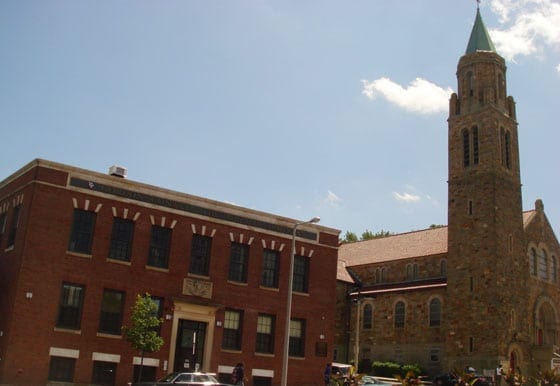

Author: Thomas LeendersLocated on Warren Street in Roxbury, Gordon-Conwell Theological Seminary’s Center for Urban Ministerial Education (CUME) has earned praise in the religious education community for its innovative approach to teaching theology. The theory is simple, as Dean Alvin Padilla explains it: To meet the needs of modern, inner-city congregations, seminarians must learn what it means to be a part of a modern, inner-city community — and that means immersing themselves in one.
As Alvin Padilla explains it, the Boston campus of Gordon-Conwell Theological Seminary is not your typical evangelical training ground.
Padilla, the school’s dean, says that evangelical seminarians — traditionally white males — have long prepared for their missions by traveling to remote regions. The practice, known as “retreating,” places a premium on the kind of silent contemplation that isn’t easy to muster in the heart of the city.
But Padilla isn’t interested in retreating. He prefers to advance.
“Never turn to yesterday’s answers to look for [solutions to] tomorrow’s problems,” he says. “You need to adapt.”
Adapt is exactly what Gordon-Conwell’s Center for Urban Ministerial Education (CUME) has done since it was established in 1976 at Twelfth Baptist Church on Warren Street in Roxbury. According to a historical overview published by the school, CUME’s mission is to provide a theological education that is “in the city, of the city and for and with the city.”
Padilla says that the need for such a redefined focus became apparent about 40 years ago. As cities began to sprawl, once-remote seminaries found themselves suddenly in the center of the inner city. Faced with the encroaching urban life, the seminaries, well, retreated.
“In the late ’60s, early ’70s, there was a great deal of white flight from the city, and a lot of seminaries … left the cities thinking that they were going to greener pastures,” Padilla says. “Yeah, they went to greener pastures! But they were living in the woods and they really abandoned the people.”
There’s one big problem with this reclusive model of theological education, Padilla explains: Suburban- or rurally-trained pastors cannot minister effectively to the material, social and spiritual needs of an urban community.
Padilla himself studied at Gordon-Conwell’s campus in South Hamilton, about an hour north of the city. According to its Web site, the South Hamilton site consists of 118 acres of rolling hills and winding lanes. To highlight the disconnect between suburban instruction and city practice, Padilla relates a personal anecdote.
“I graduated from Gordon Conwell in [South] Hamilton and I was an excellent student,” he recalls. “Then I went to inner-city ministry in New York City, and I was totally incompetent. I thought people were going to come over by the droves just to hear me quote [ancient Athenian orator] Demosthenes or something like that.”
As he quickly learned, “that just doesn’t happen.”
“People more cared about what … I was doing in their neighborhood,” he says.






